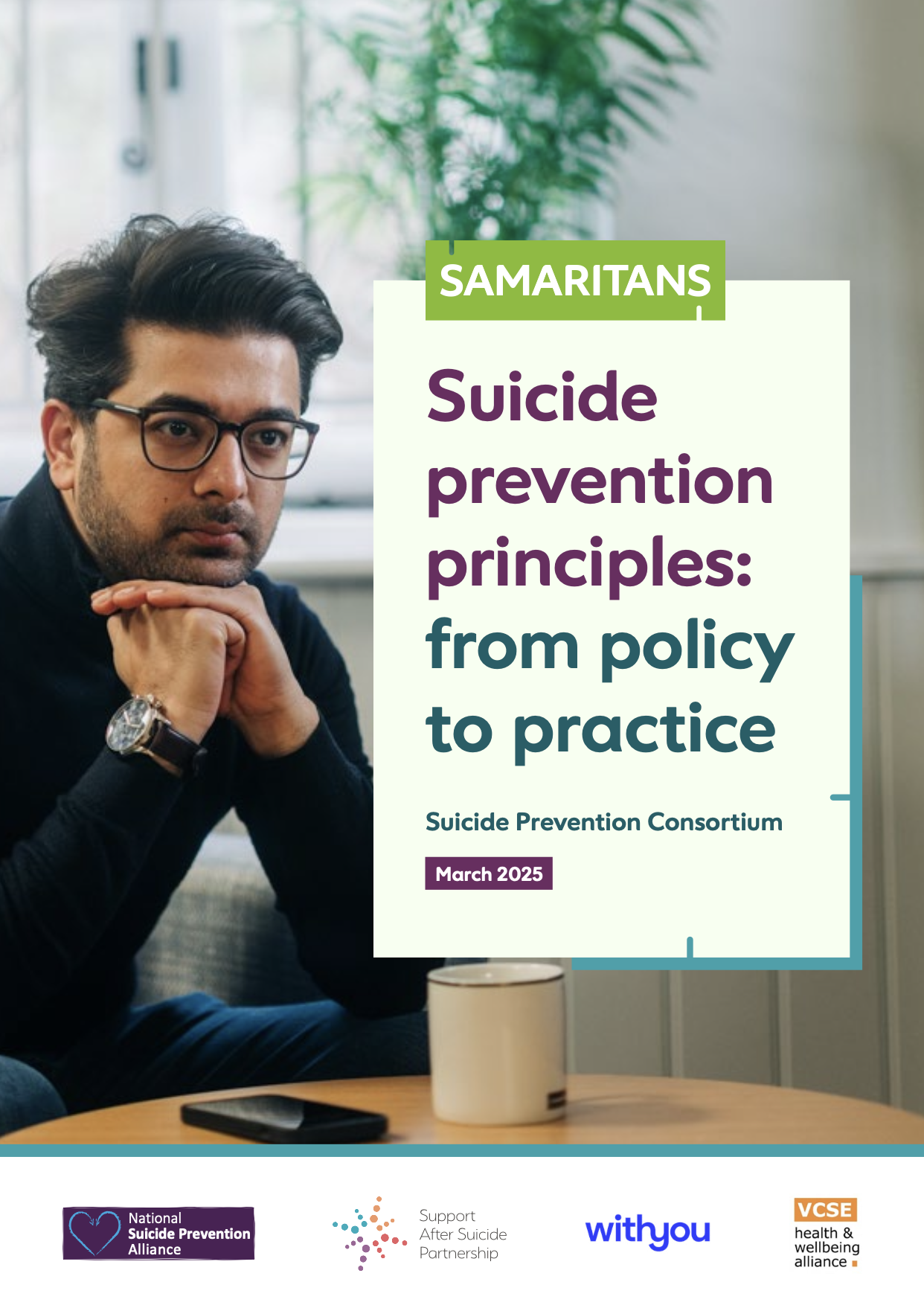Suicide prevention principles: from policy to practice
As part of the Suicide Prevention Consortium, our 2025 report, Suicide Prevention Principles: From policy to practice, supports the principles of ‘no wrong door’ to accessing support and person-centred care.
This report is informed by insights from people with lived experience, workshops with practitioners and professionals, and what we have learned over the past four years of the Consortium. Together with our partners in the Consortium (Samaritans, With You, and Support After Suicide Partnership), we call on policymakers and practitioners to take sustained and targeted action to improve care by:
Fostering collaboration: Collaboration – between services, staff and people receiving support – must be at the heart of service design and delivery. Services need to work in a joined-up way, collaborating with each other and the people they support. This includes improving technology and ensuring data can be shared securely, as well as involving people with lived experience in design, implementation and evaluation of services.
Prioritising inclusion: Services should take an inclusive, holistic approach, recognising individuality and the diverse ways people access support. A person’s identity, background or specific needs must not be a barrier to accessing high quality care. Individuals should be empowered to make decisions and engage openly with healthcare professionals without fear of judgment. Accessible and culturally sensitive approaches are essential for building trust and ensuring meaningful support.
Raising staff awareness and building confidence: Staff awareness should be raised, and ongoing training provided to boost confidence in delivering compassionate, patient-centred care. Many practitioners are already delivering compassionate, inclusive care. The principles of ‘no wrong door’ and person-centred care should not, therefore, be presented as another new initiative.
Supporting the workforce: It is essential to prioritise the mental health and wellbeing of staff so they can effectively support people affected by suicide. Staff need time and support to reflect on their experiences and manage the impact of providing care. This is essential for creating a supportive environment, minimising the risk of compassion fatigue or vicarious trauma, and ensuring both staff wellbeing and high-quality care.
